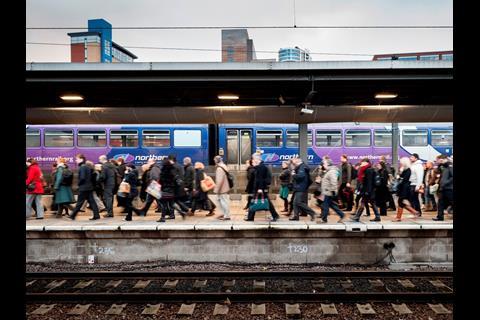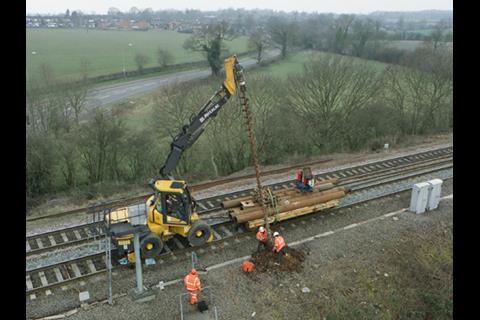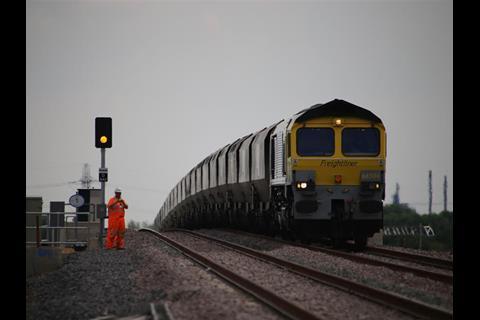UK: Identifying ‘a compelling vision for growth’, the report into Network Rail’s structure and financing prepared for the government by HS1 Chief Executive Nicola Shaw was published on March 16, in conjunction with the presentation of the national budget in Parliament.
Citing feedback from extensive consultation over the past few months, the Shaw Report emphasises that ‘the railway acts as an important force in national social integration’. Noting that ‘passenger journeys have more than doubled, from 735 million in 1995 to 1·6 billion in 2014’, she says ‘throughout its history, but particularly in the last 15 years, the railway has transformed itself to respond effectively to its role as a key artery of economic growth for this country.’ However, the structure put in place at privatisation in 1994-95 is no longer fit for purpose following the reclassification of Network Rail as a government body.
Shaw suggests that ‘there are four core problems with the way infrastructure services are delivered by Network Rail’:
• a lack of local flexibility and autonomy in what has become a very large and complex system with a monopoly provider of rail infrastructure at its heart;
• the railway needs to function as an interoperable system, and it needs to be planned and developed to meet national as well as local economic and social needs;
• the arrangements for Network Rail’s financial control, incentives, accountability and governance are no longer fit for purpose for a public-sector infrastructure manager operating in a resource constrained environment, and do not provide sufficient focus on financial discipline;
• the railway fundamentally depends on its people, but there is evidence that the industry is struggling to be sufficiently attractive to a new generation from across all backgrounds.
‘Moreover, Network Rail's culture needs to change if it is going to become a truly customer-focused organisation, with an eye on its contribution to economic growth and national prosperity.’
The report therefore puts forward seven recommendations for reshaping the management, oversight and financing of the national rail network.
1: Place the needs of passengers and freight shippers at the heart of rail infrastructure management.
2: Focus on the customer through deeper route devolution, supported by independent regulation. A 'virtual route' would provide a national focus for freight operations across geographical boundaries. Network co-ordination and integrity should be provided by a System Operator & Technical Authority.
3: Create a separate route management team for the North of England, to align with greater political devolution in the planning and oversight of rail services.
4: Clarify the government’s role in the railway and in Network Rail.
5: Plan the railway based on customer, passenger and freight needs.
6: Explore new ways of paying for the growth in passengers and freight on the railway.
7: Develop industry-wide plans to develop skills and improve diversity.
While the report dismisses ‘privatisation of the whole company', it has looked for ‘solutions that may be appropriate for certain parts of Network Rail as well as for specific enhancement projects’. Options to introduce private sector capital could include concessions or time-limited licences to operate some parts of the network. This could also offer benefits in terms of greater autonomy and a different approach to asset management, innovation and efficiency.
Recognising that ‘there will be inherent tensions in structuring a transaction that represents value for money for the taxpayer, maintains the long-term flexibility of the railway to meet the evolving needs of its users and is an attractive investment for the private sector, the report says ‘before going to market a public interest test should be undertaken to fully assess these variables.’
Shaw says there are ‘much more varied’ opportunities to introduce private funding for specific infrastructure projects, including DBFT, local developer support and innovative approaches to procurement.
As an essential prerequisite for any changes at Network Rail, Shaw says the Department for Transport ‘should formulate a long-term vision for the railway over the next 30 years, providing a long-term context for political decisions.’




















